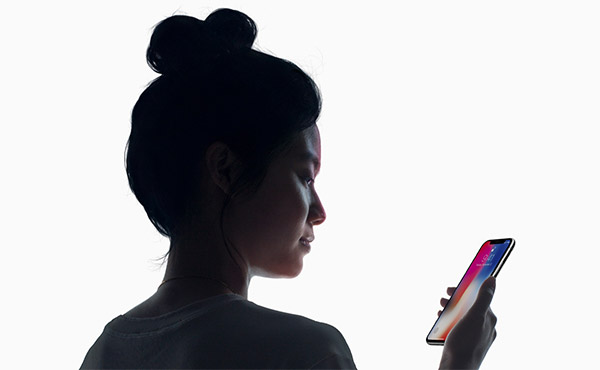There has been much excitement and a little scepticism about Apple’s iPhone X, particularly its new method of authentication. By ditching Touch ID and replacing it with facial recognition in the guise of Face ID, Apple has opened itself up to criticism if the technology is not up to snuff.
The short demonstrations we have seen would suggest that any fears are unfounded, but one thing that we do know with utmost certainty is that the camera required by Face ID has proven difficult for Apple’s partners to build, and now Bloomberg reports that Apple had to reduce Face ID’s accuracy in order to get iPhone X handsets ready for sale.


With the new iPhone X arriving in just over a week, the expected stock shortages of the device has been making headlines for a while now. In a new report published by Bloomberg, Apple is said to have allowed the likes of LG, Innotek and Sharp to cut corners in order to ensure that enough cameras are made ready for iPhone X units. In particular, it is believed that the flood illuminator, which forms part of the TrueDepth camera system, has proven particularly difficult to get right at scale.
To boost the number of usable dot projectors and accelerate production, Apple relaxed some of the specifications for Face ID, according to a different person with knowledge of the process. As a result, it took less time to test completed modules, one of the major sticking points, the person said.
It’s not clear how much the new specs will reduce the technology’s efficacy. At the phone’s official unveiling in September, executives boasted that there was a one in a million chance that an interloper could defeat Face ID to unlock a phone. Even downgraded, it will probably still be far more accurate than Touch ID, where the odds of someone other than the owner of a phone being able to unlock it are one in 50,000.
After initially remaining tight lipped, Apple has also responded to the claims, saying that Bloomberg’s report is simply “completely false,” going on to reiterate the belief that Face ID will become the new standard for facial recognition. Apple does not normally respond to such reports, but the fact it felt the need to tackle the claim head on would suggest that either the report hit a nerve inside Apple, or simply that Apple does not want its new headline feature to be something customers have doubts about ahead of even being able to test it for themselves. Here’s Apple’s response in full:
Customer excitement for iPhone X and Face ID has been incredible, and we can’t wait for customers to get their hands on it starting Friday, November 3. Face ID is a powerful and secure authentication system that’s incredibly easy and intuitive to use. The quality and accuracy of Face ID haven’t changed. It continues to be 1 in a million probability of a random person unlocking your iPhone with Face ID.
Bloomberg’s claim that Apple has reduced the accuracy spec for Face ID is completely false and we expect Face ID to be the new gold standard for facial authentication.
With the iPhone X arriving on November 3, we will finally get the chance to see how Face ID behaves in the real world, but it will have some way to go before it can match the absolute trust shown in Touch ID since its introduction as part of the iPhone 5s.
(Source: Bloomberg)
You may also like to check out:
- Unlocked / SIM-Free iPhone X Price In USA, UK, India, China And More
- macOS 10.13 High Sierra Hackintosh Now Possible With UniBeast 8.0 Release
- Colossus Repo In Kodi Down Or Not Working? Here’s How To Install It The Right Way
- Kodi 17.5.1 APK Download For Android Will Fix Startup Crash Issue
- Spoof Or Fake Location In iOS 11 iPhone [No Jailbreak Required]
- Downgrade iOS 11 / 11.1 On iPhone Or iPad [How-To Guide]
- Download iOS 11, 11.1, 11.0.3 Links & Install On iPhone 8, 7 Plus, 6s, 6, SE, 5s, iPad, iPod [Tutorial]
- Jailbreak iOS 11 / 11.1 / 11.0.3 On iPhone And iPad [Status Update]
You can follow us on Twitter, add us to your circle on Google+ or like our Facebook page to keep yourself updated on all the latest from Microsoft, Google, Apple and the Web.
